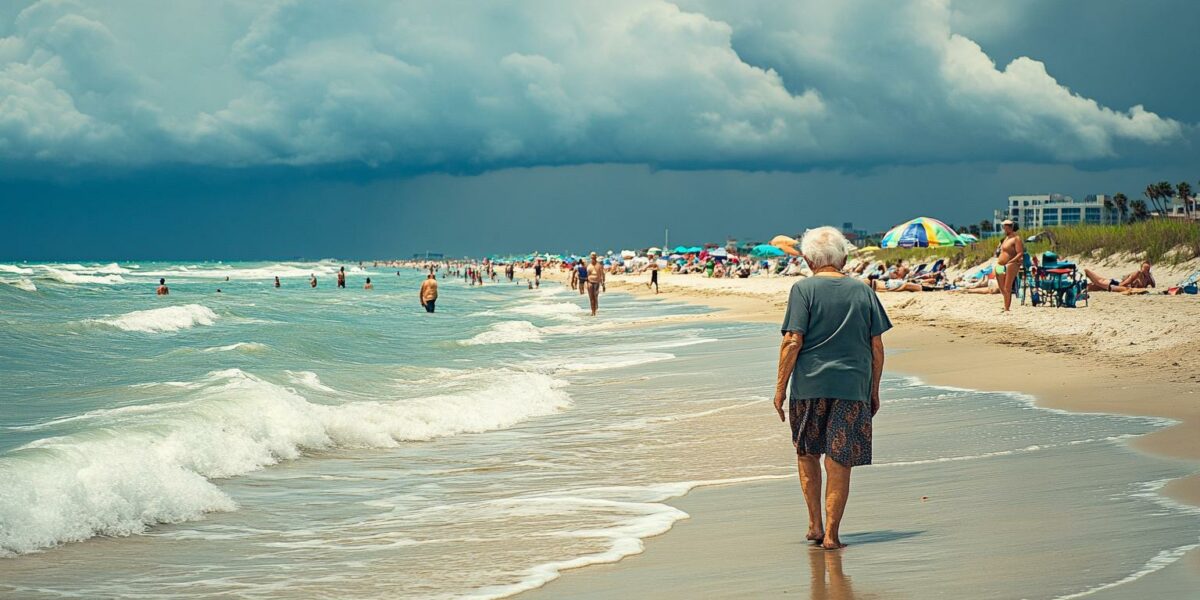Florida’s Climate Challenge: A Looming Health Crisis
Florida, known for its scorching heat, is facing a public health emergency due to climate change. With nearly 4.7 million residents over 65, the state is seeing a rise in heat-related illnesses. Coastal areas, home to most Floridians, are increasingly vulnerable to rising sea levels and severe storms.
The state anticipates more adverse health outcomes from extreme heat. Vulnerable populations, particularly the elderly, are at higher risk. Despite these challenges, state policies have not prioritized climate change mitigation, leaving local governments and nonprofits to fend for themselves.
This decentralized approach is far from effective. Florida’s lack of a statewide plan to combat climate change exacerbates the problem. According to experts, a unified strategy would have a more significant impact on public health and safety.
Dr. Cheryl Holder, co-chair of Miami-Dade County’s Climate and Heat Health Task Force, emphasized the need for systematic change. She noted that local efforts, while commendable, can’t match the potential of a coordinated state initiative.
Political Hurdles in Climate Action
Governor Ron DeSantis has been a notable opponent of climate change policies. In recent years, his administration has rolled back numerous climate initiatives, including the removal of climate change references from state energy policies. This stance has left cities like Miami-Dade and Tampa to develop their own resilience measures.
Recent legislative actions have further hindered progress. For instance, DeSantis signed a law preventing local governments from enacting heat protection measures for outdoor workers. This has forced cities to withdraw rules that would safeguard their residents.
However, several states are taking a different approach. States with Democratic leadership, such as California and New York, are implementing comprehensive plans to address climate impacts. These plans include:
- Creating public cooling centers
- Increasing urban tree planting
- Adopting workplace safety rules
In contrast, Florida’s fragmented efforts highlight a significant gap in its climate readiness. The need for a unified state policy is more pressing than ever as the state continues to face severe climate threats.
Federal Support and Local Efforts
Despite the state’s stance, federal grants have provided some relief. Florida State University received funding to work with local health departments, although a comprehensive state plan remains absent. This highlights the importance of federal assistance in filling the gaps left by state policies.
Even though DeSantis recently accepted federal energy efficiency funds, his administration’s inconsistent approach has caused uncertainty. This inconsistency has led local governments to seek alternative funding sources for climate initiatives.
Susan Glickman from the CLEO Institute praised Florida’s efforts to address sea level rise but stressed that root causes of climate change must be tackled. Without addressing these causes, adaptation measures will fall short in the long run.
Kim Ross of ReThink Energy Florida echoed these sentiments. She pointed out that Florida could lead in climate innovation, but current policies are holding the state back. This has prompted local advocates to push for non-state funding options for climate projects.
The Future of Climate Policy in Florida
Florida’s political landscape has significantly shaped its climate policy. The state’s reluctance to adopt comprehensive climate measures contrasts sharply with other states’ proactive approaches. This divide underscores the need for a paradigm shift in Florida’s policy making.
Looking at other states’ successes, it’s evident that a unified strategy can lead to substantial progress. Federal support remains crucial, but state-level commitment is indispensable for long-term resilience.
Advocates continue to push for change, emphasizing the health risks posed by climate inaction. They argue that addressing climate change is not just an environmental issue but a critical public health concern.
Ultimately, Florida’s path forward will depend on its willingness to embrace comprehensive climate policies. The state’s residents, particularly the vulnerable, stand to benefit immensely from a coordinated and robust approach to climate change mitigation.



Oscar6
LOL, maybe we should all move to New York or California then?
stellaseraphim
Is there any hope that the federal support will make a big difference?
oreosentinel
Can you imagine the hurricanes combined with extreme heat? Yikes!
SilasFatespeaker
Typical politics… always playing games with our health and safety.
luis_flare6
Wait, so other states have cooling centers but we can’t even protect outdoor workers? That’s crazy!
PiperKinetic
Thank you for shedding light on this. We need more awareness!
Madison_Moonshadow
As a senior living in Florida, this is really concerning. What can we do to push for change?
Charlotte5
It’s shocking how some leaders can ignore such a pressing issue. 😡
theodore1
Why isn’t Florida taking this more seriously? Lives are at stake!